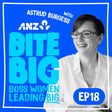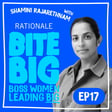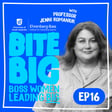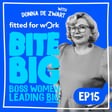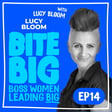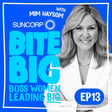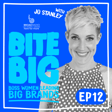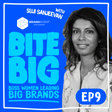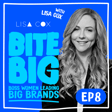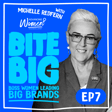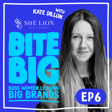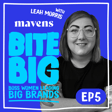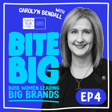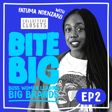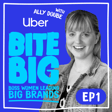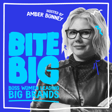
Amber Bites Big with Denni Francisco, proud Wiradjuri woman & founder of indigenous fashion label, Ngali
In Episode 11, Amber Bonney Bites Big with guest co-host Denni Francisco - proud Wiradjuri woman, a pioneer in the Australian fashion industry and a strong advocate for First Nations people.
Inspired by Amber's own Mantra, "bite big and chew like hell", in this episode we talk about how Denni's own Mantra centralised around the notion of "Together we create". Denni's mantra has been the guiding foundation of both her business's where she sees collective togetherness as being at the heart of her values, actions and impact.
We talk about the powerhouse that is Ngali, Denni's high-end fashion label which saw her secure her first standalone show as a First Nations designer in 2023! Denni's shares her experience of this journey from the daunting task of preparing for the show to the sense of relief when it was over, only allowing herself to reflect and acknowledge the magnitude of what she had achieved in the weeks and months that followed.
As a First Nations woman, Denni discusses her childhood and the profound influence of her grandmother in shaping the woman she is today and her perspective of the world. Denni delves into how she feels she has a responsibility to take advantage of the opportunities she has had, to understand her privilege, and to help generate opportunities and to shine a light on First Nations creativity.
Bite Big has donated $500 to the chosen charity Dot Com Mob a charity that aims to improve the lives of people living in remote Australian Indigenous communities by providing access to technology centre, Youth IT training & digital inclusion projects.
If you would like to know more about our host Amber Bonney her business The Edison Agency or co-host Denni Francisco you can connect and follow these boss women via their socials links below!
Links:
Denni LinkedIn
Ngali Website
Ngali Instagram
The Edison Agency's LinkedIn
The Edison Agency's Instagram
Amber's Instagram
Amber's LinkedIn
Credits
Main Host: Amber Bonney
Producer: Niki Beeston
Post Production : Fran Toscano, 17th Street Audio,
